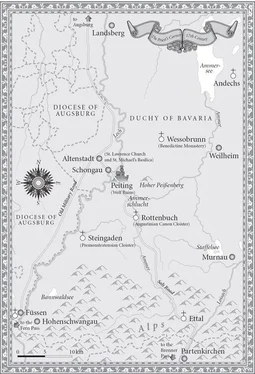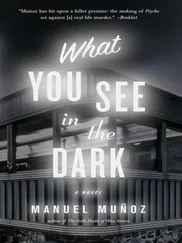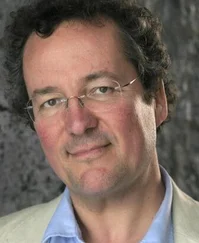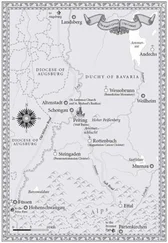Oliver Potzsch - The Dark Monk
Здесь есть возможность читать онлайн «Oliver Potzsch - The Dark Monk» весь текст электронной книги совершенно бесплатно (целиком полную версию без сокращений). В некоторых случаях можно слушать аудио, скачать через торрент в формате fb2 и присутствует краткое содержание. Жанр: Исторический детектив, на английском языке. Описание произведения, (предисловие) а так же отзывы посетителей доступны на портале библиотеки ЛибКат.
- Название:The Dark Monk
- Автор:
- Жанр:
- Год:неизвестен
- ISBN:нет данных
- Рейтинг книги:5 / 5. Голосов: 1
-
Избранное:Добавить в избранное
- Отзывы:
-
Ваша оценка:
- 100
- 1
- 2
- 3
- 4
- 5
The Dark Monk: краткое содержание, описание и аннотация
Предлагаем к чтению аннотацию, описание, краткое содержание или предисловие (зависит от того, что написал сам автор книги «The Dark Monk»). Если вы не нашли необходимую информацию о книге — напишите в комментариях, мы постараемся отыскать её.
The Dark Monk — читать онлайн бесплатно полную книгу (весь текст) целиком
Ниже представлен текст книги, разбитый по страницам. Система сохранения места последней прочитанной страницы, позволяет с удобством читать онлайн бесплатно книгу «The Dark Monk», без необходимости каждый раз заново искать на чём Вы остановились. Поставьте закладку, и сможете в любой момент перейти на страницу, на которой закончили чтение.
Интервал:
Закладка:
“So what are you waiting for?” he asked.
“What do you mean?” Magdalena said, with some irritation.
“You wanted to help me snoop around, so go find the workers who were in the Saint Lawrence Church and talk with them. Talking with men and making eyes at them is something you can do, can’t you?”
Magdalena grimaced at him, then put on her cape and walked out into the cold.
When Simon walked in the front door, he realized it would probably be some time before he would be able to continue reading the little book about the Templars. Sitting on the bench by the stove were three citizens of Schongau, all of whom looked like they needed more than just a few words of consolation and a cheese compress. Simon knew them all. Two were farmers from the area whom he had often seen in the marketplace. The third was the Schongau blacksmith’s journeyman. He was coughing up reddish-yellow mucus, which he thoughtfully spat into some brown rags. Nevertheless, some kept spattering onto the wooden floorboards, which were only sparsely covered with dirty reeds. The faces of the patients were drawn, beads of sweat stood out on their foreheads, and all of them had dark rings around their eyes and faces the color of wax.
To drive away the poisonous miasma, old Fronwieser had been burning lavender and balm, and it smelled like Easter mass in the little room. Simon didn’t think these vapors did any good. He had read, in fact, that diseases were carried by dirt and bodily fluids, but his father considered this to be just newfangled nonsense. As the blacksmith’s journeyman on his left went into a new fit of coughing, Simon cautiously moved one step to the side.
“Isn’t it nice that the young gentleman finally showed up. What kept you so long in Altenstadt? A nice little supper with the priest?” Bonifaz Fronwieser entered from the adjacent room holding a smoking pine chip and a few more sprigs of lavender. At one time, as a dashing young army surgeon in the Great War, he had been an imposing figure and had made eyes with many a pretty girl, but now, stooped over with thinning gray hair, he looked older than his fifty years, and all that remained of his former self was his piercing, alert eyes. And his harsh tone.
“I’ve been waiting for you for hours!” he snapped softly enough that the three patients on the bench couldn’t hear. “I have to pay a visit to Master Hardenberg, a member of the city council. He’s come down with it, too! And instead, here I am fooling around with a few farmers who can only afford to pay me with a few eggs, at best!”
He poked his withered index finger at Simon’s chest. “Tell me the truth-you’ve been keeping company with the hangman again and sticking your nose into those filthy books! People are already gossiping, and you’re giving them a reason to.”
Simon rolled his eyes. Bonifaz Fronwieser hated the hangman, who he thought was corrupting his son with books and his unorthodox methods of healing.
“Father, the priest-” he said, trying to interrupt his father’s harangue, but his father cut him off nevertheless.
“Aha, so that’s it! No doubt you were partying with the fat old codger, eh? Hope you enjoyed your meal, at least,” he croaked. “His housekeeper at least is supposed to be a good cook!”
“He’s dead, Father,” Simon said softly.
“What?” Bonifaz Fronwieser seemed irritated. For a moment, he wanted to continue his litany of complaints, but now he hesitated. He hadn’t reckoned with this news.
“Koppmeyer is dead, so there were some things that had to be done,” Simon repeated.
“I’m…I’m really sorry,” the older physician grumbled after a short pause. “Did he have this fever, too?”
Simon eyed the three patients, who looked at him partly out of curiosity and partly out of fear. Then he shook his head.
“No…It was something else. I’ll tell you later.”
“Very well,” his father grumbled, falling back into his familiar role. “Then get to work. As you can see, there are still a few of the living here and they need to be treated.”
Simon sighed, then helped his father in examining the patients. There wasn’t a lot to do: fetch a few dried herbs for a potion, listen to a few chests, check tongues, the usual sniffing and observing of urine samples. Simon had no illusions-most of this was just cheap playacting performed to give sick people false hope and take their money. Even doctors with university degrees couldn’t usually tell very much. The two Fronwiesers were just as helpless in the face of this fever, which had been spreading around Schongau for a full two weeks and had killed a dozen people. People were getting chills and pain in the joints, and some died suddenly overnight. Others survived the first onslaught, only to be overcome with terrible coughing fits soon after.
It made Simon furious to stand by helpless in the face of this epidemic. His father, on the other hand, seemed to have resigned himself to it. The relationship between them was tense, to put it mildly. As the town doctor of Schongau, Bonifaz Fronwieser hoped his son would someday follow in his footsteps. But Simon didn’t want anything to do with his father’s old-fashioned methods-enemas, bloodletting, sniffing old men’s urine. The young medicus preferred to occupy himself with the books that the Schongau hangman was always lending to him. He had long ago worked his way through the box of leather folios that Jakob Kuisl had given him as a present almost a year ago, and he longed for more. Even now, as he was occupied with treating the three patients, he couldn’t help but think again about the theories of controversial scientists. Currently, he was rereading the work of an Englishman named William Harvey, which dealt with the circulation of blood in the human body. Was it possible that blood consisted of tiny animalcules…?
“Why are you standing around daydreaming, you good-for-nothing!” his father snapped, interrupting his reveries. “Here, take some blood from Johannes Steringer! I’m going to the alderman now. Bleeding is something you can do by yourself!”
He handed Simon the sharp little stiletto they used for slitting a patient’s veins. Then, after briefly wishing them a good recovery, he set out on his way. “And don’t let them put you off with a few eggs and a loaf of bread,” he scolded Simon as he walked past him.
Simon looked down at Johannes Steringer, who was sitting on the bench in front of him, coughing and shaking and spitting up reddish-yellow phlegm into a ratty handkerchief. He knew the blacksmith’s journeyman from a few previous house calls, a strong, solid fellow who was slumped over now, hardly able to move, and staring blankly into space. The idea of letting blood from this sick, weakened body seemed outright foolish to Simon. He knew that bloodletting was a tried-and-tested remedy for almost any sickness; nevertheless, he put the stiletto aside.
“It’s all right, Steringer,” he said. “You can go home now. Have your wife make you some sage broth and lie down next to the stove until it gets better.”
“And the bloodletting?” the journeyman gasped.
“We’ll do that another time. For now, you need your blood. Go home.”
Steringer nodded and set out for home, as did the two farmers. Simon gave each of them a little jar of wild thyme. As payment, the young medicus pocketed a few old discolored coins and half a leg of smoked ham. He thanked them and closed the door behind them as they left.
Simon took a deep breath. Finally, he had time to devote to the little book the patrician had given him. He sat down excitedly on the bench next to the stove and leafed through the yellowing pages.
There was a lot to learn about the rise and fall of the Templars. He read that they had even lent money to the Pope and that they had been almost invincible in battle, a band with strange rites and customs whose members had sworn allegiance to one another, who had flung themselves headlong into battle for God, and who were even admired by their enemies for their bravery. He read about the great battles in the Holy Land, the destruction of Jerusalem, the flight of the Templars to Cyprus, and their continuing power in Europe. He was astonished to learn that, in the end, the knightly order owned more than ten thousand castles and estates, from England to Byzantium! Had there also been a branch here in Schongau? Which Templar’s bones had they found under the St. Lawrence Church? Had he left a message to posterity on the marble slab?
Читать дальшеИнтервал:
Закладка:
Похожие книги на «The Dark Monk»
Представляем Вашему вниманию похожие книги на «The Dark Monk» списком для выбора. Мы отобрали схожую по названию и смыслу литературу в надежде предоставить читателям больше вариантов отыскать новые, интересные, ещё непрочитанные произведения.
Обсуждение, отзывы о книге «The Dark Monk» и просто собственные мнения читателей. Оставьте ваши комментарии, напишите, что Вы думаете о произведении, его смысле или главных героях. Укажите что конкретно понравилось, а что нет, и почему Вы так считаете.












